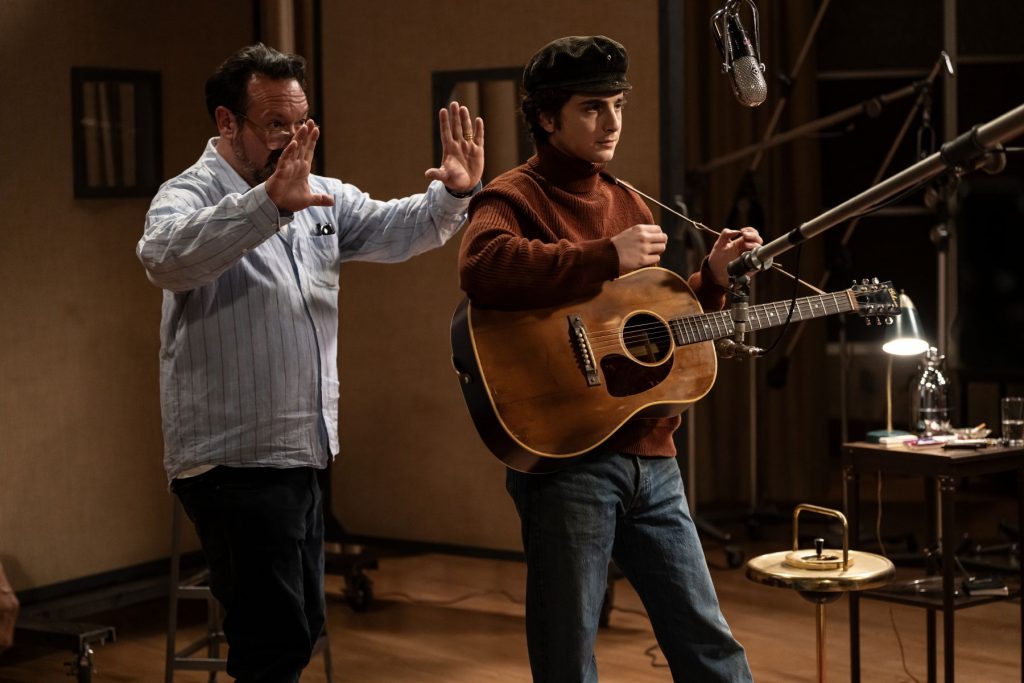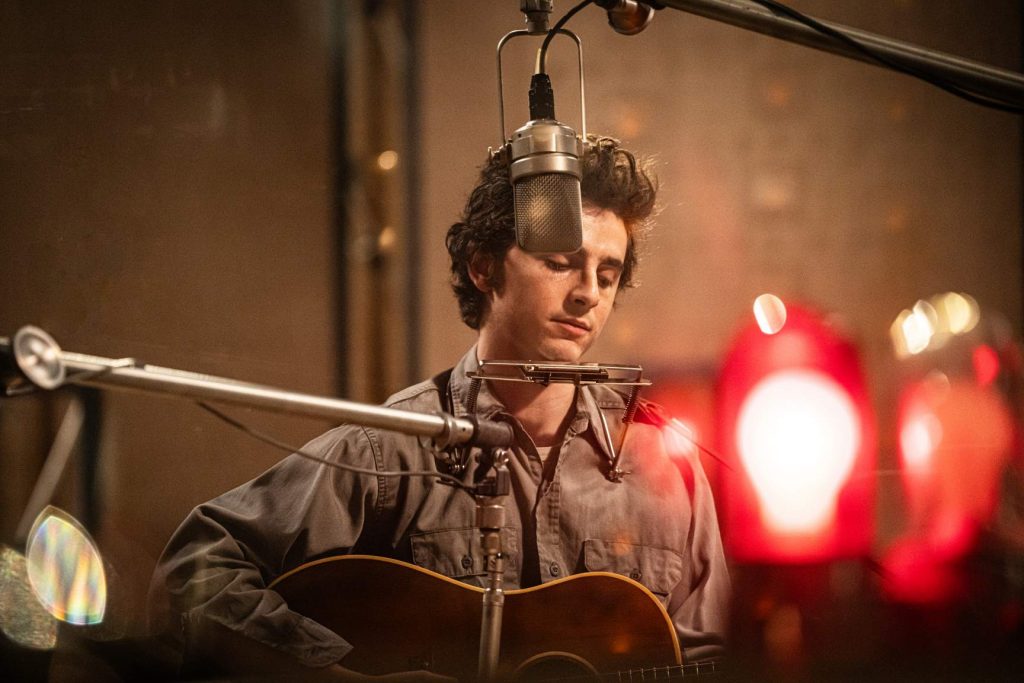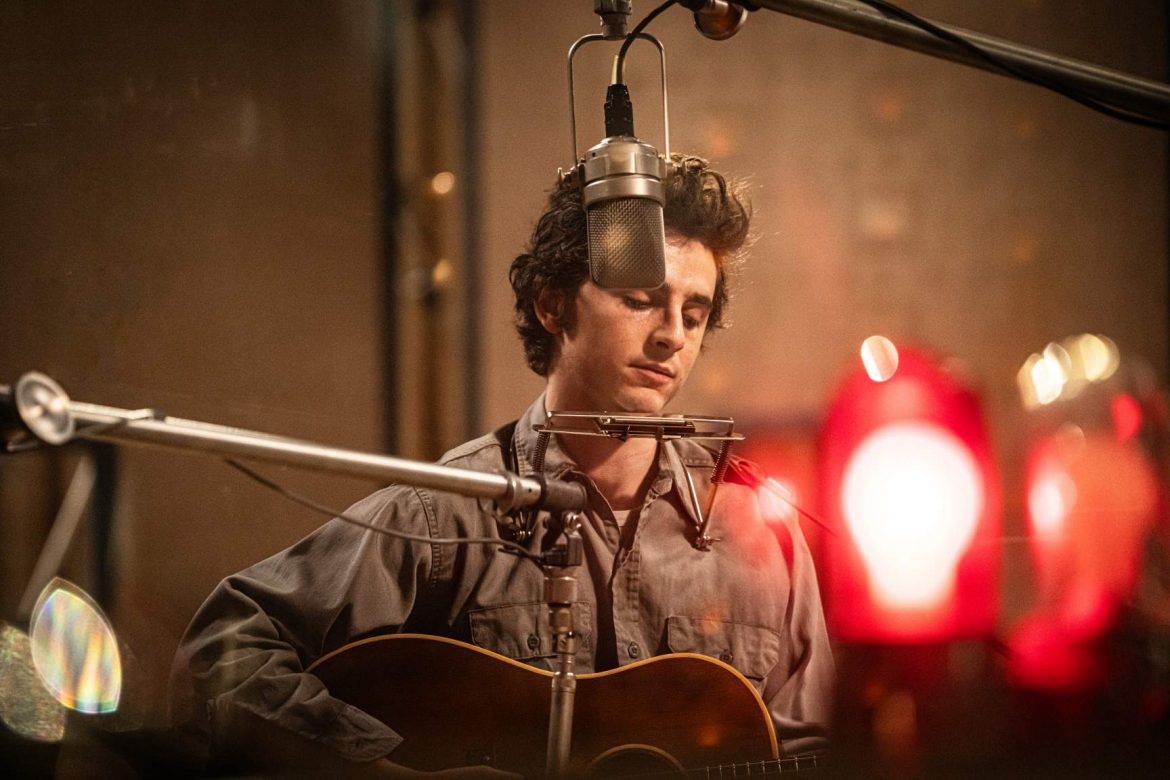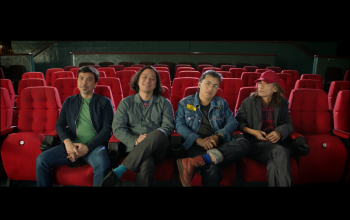Bob Dylan became the American counterculture icon because he never rested on his laurels. He did not merely follow the tradition of folk music and settle there. Instead, he tried to experiment and improve the genre with a loud electric guitar. He loves risk and I wish director James Mangold took Dylan’s confidence in crafting the Nobel Prize-winning storyteller’s story in A Complete Unknown.

A music biopic is usually not just made for the fans of the subject and A Complete Unknown is no exception. In adapting the book Dylan Goes Electric!, Mangold wants remind the Dylan fans of his beginning while he also aims for the non-fans to learn why the singer is beloved in America. As a millennial Filipino who grew up listening to mainstream pop radio, I admit that I am not familiar with Dylan. He is just one of those American figures who I read in books. It took more 25 years before I got my first Dylan experience with Knockin on Heaven’s Door.
Did I become interested with Dylan’s discography because of A Complete Unknown? I almost checked out but still stayed because of two things: the ensemble cast and Mangold’s direction and screenplay in the second part.
The first part feels like a Wikipedia entry of Dylan’s life. In this part of the film, Dylan’s a talented 19-year-old nobody who arrived in the city. A wise older man took him under his care (Edward Norton in an Oscar-nominated performance as Pete Seeger). He met a woman who will influence his music and that is Sylvie Russo (Elle Fanning), a fictional character based on Dylan’s ex-girlfriend Suze Rotolo. Then there’s Joan Baez (Monica Barbaro, a relevatory performance that earned her a semi-surprising Oscar nomination), another folk singer who had an affair with Dylan.
Mangold, who previously directed the critically acclaimed 2005 Johnny Cash biopic Walk the Line, thought the wheel doesn’t need to be fixed because it’s not broken. If that is the case, Mangold failed to realize that the wheel he kept on using will not boost the speed of his vehicle, making the ride so dragging.
Fortunately, A Complete Unknown steered away from the banal musical biopic formula. Mangold’s direction became interesting when it posted a crucial question for Dylan: Should he continue playing his well-received folk songs or should he risk it all for his passion of improving his music. Dylan started playing electric guitar, refused to play his old songs with Baez in a concert, and insisted that he will play new music in the Newport Folk Festival—-with electric guitar. Electric guitars? Why are you butchering the beloved genre, Bob?

Almost everyone was discouraging him, especially Seeger. In his crucial monologue in the film, Norton sharply delivered Seeger’s plea to Dylan about the importance of keeping the history, tradition, and usual conventions of folk music. His passionate speech fueled the film’s dilemma on crafting art to its fullest potential.
Dylan’s energy was perfectly encapsulated by Chalamet in his highly-commited performance. He is not lying when he said in his Screen Actors Guild Award speech that he is in pursuit of greatness because it is evident in tis film. When it comes to biopics, most actors want to metamorphose into the person they were playing. But not Chalamet. In some moments, I see Dylan. In some parts, I see Chalamet playing as Dylan. That is not bad acting. Chalamet is not cheaply impersonating Dylan. He perfectly embodies Dylan’s rebelliousness, messiness, and passion for storytelling through music. Just like Dylan, Chalamet can’t conform to the projected elements of a biopic performance; he must subvert the expectations. His performance kept the film afloat from slowly sinking into the pitfalls of dullness and genericness. Don’t worry, Timmy! You will get that Oscar one day.
I wished Mangold took more risks from the start just like Dylan and Chalamet. It would have been a Bob Dylan thing to do is Mangold risked it all and confidently attempted to raise the bar for music biopics with A Complete Unknown. It can be a hit or a big swing but either way, it will be remembered, just like Dylan. – Roy Narra



